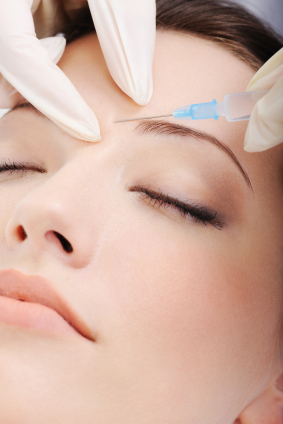Botox May Improve Depression
 Relaxing facial frown muscles with Botox may produce antidepressant effects. The muscles on the forehead between the eyebrows tend to tense and constrict during episodes of depression, anxiety, and grief. A placebo-controlled clinical trial by Eric Finzi and Norm Rosenthal has shown that paralyzing these frown muscles can produce antidepressant results.
Relaxing facial frown muscles with Botox may produce antidepressant effects. The muscles on the forehead between the eyebrows tend to tense and constrict during episodes of depression, anxiety, and grief. A placebo-controlled clinical trial by Eric Finzi and Norm Rosenthal has shown that paralyzing these frown muscles can produce antidepressant results.
Study participants with treatment-resistant depression received either paralyzing injections of botulinum toxin, better know by its trade name Botox, or placebo injections. The antidepressant response rate was 51% among patients who received Botox and 14% among those who received placebo. The remission rate was 27.3% with Botox versus 7.3% with placebo injections. These data are particularly striking because these patients had, on average, been ill for more than two years, during which time they had been through multiple unsuccessful antidepressant trials.
In 1872, Charles Darwin emphasized the importance of facial muscles in social communication and affect, and in 1890 William James suggested that sensory feedback from musculature changed people’s affect, rather than the opposite and conventional view that affective and emotional states cause muscles to tense and contract. The new data from Finzi and Rosenthal’s study are consistent with James’ view.
The investigators concluded that the data from this study suggest frowning itself may cause depression. More controlled trials using other injection sites would be helpful to further document the efficacy and selectivity of these Botox injections for the treatment of depression.

